Formula feeding your baby
There are many reasons why you may choose formula feeding. It’s a personal decision, and nobody should make you feel bad about it. Today’s formula nourishes babies, and you can bond with your baby during feeding. Bottle feeding also allows your partner to share in the feedings. Whether you decide to start feeding your newborn formula or you are supplementing breastfeeding, our Plano pediatricians have some advice about giving your baby formula.
Supplies you need for bottle feeding
You need to decide which type of bottles you want to use. Today’s plastic bottles don’t contain the chemical BPA, so they are safe. Glass bottles work best with silicone sleeves that help prevent them from breaking. Stainless steel and silicone bottles are also available, but they are usually more expensive options.
There are two types of material used for nipples—clear silicone or brown latex. There are a variety of types, ranging from orthodontic to flat-top. You may need to experiment to see what your baby prefers. In addition, check the labels of the nipples for stages or flow rates. Newborns need a slower flow, but like a faster flow as they grow.
For formula feeding, you also need formula, burp cloths and a bottle brush. There are different types of formula. If you are confused, talk to our Plano pediatricians and staff so they can explain the difference. Do not make homemade baby formula. It can cause serious health issues and doesn’t contain all the nutrients your baby requires to grow and thrive.
How much formula does your baby need?
When your baby is a newborn, you can feed on demand. When she shows signs of being hungry, such as crying, clenching her fist or putting her lips on her hands, feed her. All babies are different, and you will learn when they are hungry and can develop a routine around their needs.
Your baby may like to sleep, and you may be worried that he isn’t eating enough. In the first couple of months, if the baby is sleeping more than four or five hours consistently and doesn’t wake up, you may need to wake him for a bottle feeding.
Babies generally need about 2.5 ounces of formula each day per pound of body weight. Here are some guidelines for you.
- By the end of month one, your baby will probably eat every three to four hours, drinking about three to four ounces each time.
- By the age of six months, your little one usually needs a bottle about four or five times each day (every 24 hours), and has increased her intake to about six to eight ounces each feeding.
Our Plano pediatricians can answer your questions about formula feeding
If you have any questions about formula, equipment, feeding schedules or anything else about formula feeding, talk to our pediatricians. They are experts and are happy to share their knowledge to help your baby get off to a great nutritional start. Contact us for an appointment.

